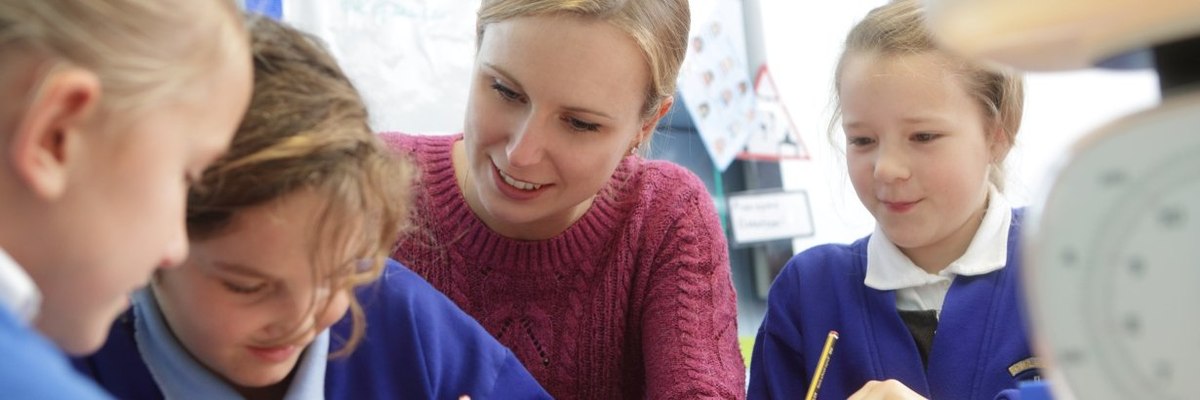A third of people in England say the school system has gotten worse, but parents still think their children are getting a good education
Earlier this year, the government appointed a new Education Recovery Commissioner to oversee a new programme aimed at helping children catch up on their education following the COVID-19 pandemic. New measures brought in could see huge changes to the traditional schooling system, from curriculum content to the teaching timetable.
Now, new YouGov polling for The Times reveals just what English parents make of today’s school system, how it has changed over the last ten years, and how it should change going into the post pandemic world.
How have schools changed in the last 10 years?
Schools and curriculums change frequently from small shifts in subject focus to other more significant changes in exam style and grading, but overall do English people think that their schools have gotten better or worse in the last decade?
Some 35% of English adults say the school system in England is worse now than it was ten years ago, compared to 24% who think it’s about the same as it was, and 17% who say its improved.
This opinion of a worsened system appears to be mainly driven by some 42% of those with children aged 17 to 18 saying schooling has changed for the worse, and 41% of those with children over 19 who think the same. This is compared to those who have children in primary level education (5 to 11-years old), of whom 29% think they are worse. Along political lines, Labour voters (43%) are slightly more likely than their Conservative peers (34%) to think that schools have worsened in the last ten years.
Further to this, half of English people (52%) agree that children now face greater pressure in school than they did previously. Approaching a quarter (24%) say that the pressure on children to do well at school hasn’t changed in the last decade, while only 9% think it has decreased.
There is consensus among parents of children of all ages that the pressure on children is greater now than previously – with over six in ten parents with children under the age of 18 saying so, as well as some 46% of adults without children who think the same. However, elsewhere, women (60%) are more likely than men (48%) to think pressure on school children has increased.
Do parents think their children are still getting a good education?
Despite many of those without children thinking schools are worse than they once were, the majority of parents are happy with the quality of education their children are receiving.
Seven in ten parents (70%) say they standard of education their children are getting is good – including 55% who rate it as “fairly” good and 15% giving it top marks at “very” good.
The perception of quality in education also appears to fall somewhat as children age, with nearly eight in ten parents with children under 5 (79%) say the standard of education they receive is good, this number does fall to around two thirds of parents with children in secondary and college level (ages 12 to 18).
Those with children aged 17 to 18 are the most dissatisfied with the quality of their education, with three in ten (32%) thinking it is bad.
The opinion of parents that their children are getting a good education also remains unchanged despite the clear challenges posed to the schooling system by the pandemic. Approaching two thirds (63%) of English parents say their child’s quality of education was good during the COVID-19 pandemic, falling only seven points despite the challenges the epidemic presented. Meanwhile, some 31% say their children’s education was bad during the pandemic.
Again, those with the youngest children are the most likely to say the quality of their pandemic education has been good (71% of those with children under 5), while those with older children and those in university are less so, but still in the majority (57% of those with children aged 17 to 18).
Do schools prepare children for work and general life?
The current school system has been accused of being too focused on exams, with the head of Ofsted saying in 2017 that an exam-focused curriculum could be damaging to education. This latest research finds that many people, including most parents, think the current system fails to prepare children for general and working life.
Around three in ten people in England (31%) think schools prepare children for work well, and only 28% say the same of preparing them for life in general. Over half (58% and 63% respectively) say that schools are doing a bad job at preparing children for the adult world.
Parents also feel schools are doing poorly in getting children ready for general life, highest among the 64% of parents with children under 5 thinking the school will not prepare their young children well for life in general, and the same proportion of parents with children between 17 and 18.
Further to this, some six in ten (60%) of those with children just about to leave compulsory education (17 to 18 years old) feel their children are badly prepared to the world of work.
Regardless of how they have changed over the years, only 28% of people agree that in 2021 schools are fit for purpose. Another 26% of people disagree, while the largest portion (46%) neither agreeing nor disagreeing that the current system is fit for purpose.
See full results here










